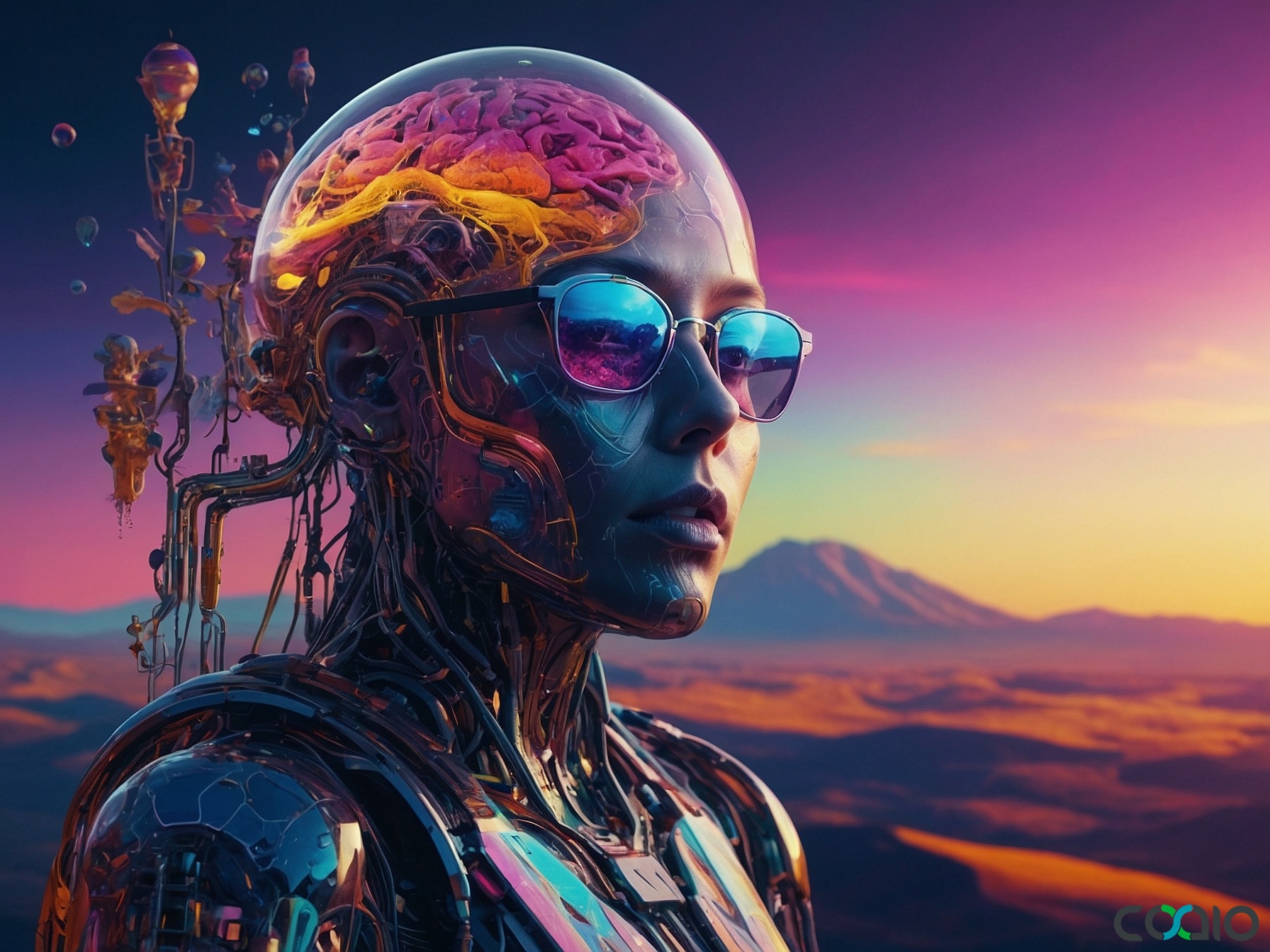
Breaking News: AI Innovations and Software Security Challenges Reshape Tech Landscape in 2025
As of October 23, 2025, the tech world is buzzing with a mix of triumphs and tribulations in software development. From AI advancements to critical security flaws, the latest headlines highlight how rapidly evolving technologies are influencing businesses and consumers alike. This article dives into the key stories making waves, drawing connections to broader trends in software engineering and innovation. We’ll explore Tesla’s struggles with AI integration, emerging DNS vulnerabilities, Snapchat’s leap in accessible AI tools, and a bold new bet against traditional AI scaling. These developments underscore the high-stakes nature of software creation, where efficiency and security are paramount.
Tesla’s AI and Software Hurdles Amid Financial Rebound
Tesla, the electric vehicle giant led by Elon Musk, has long been at the forefront of integrating advanced software into hardware, particularly with its autonomous driving features and the concept of a “robot army” of vehicles. However, recent reports reveal a company grappling with profitability issues despite strong sales. According to TechCrunch, Tesla’s profits plummeted 37% in the third quarter compared to the previous year, even as consumers flocked to buy EVs before the expiration of tax credits. Read more about Elon Musk’s concerns here. This downturn is attributed to rising expenses and a loss of regulatory credits, as detailed in another Ars Technica article. See the full financial breakdown.
At the core of Tesla’s challenges is the software that powers its Full Self-Driving (FSD) technology and robotaxi ambitions. Developing reliable AI for autonomous vehicles requires massive datasets, complex algorithms, and seamless integration with hardware—tasks that demand robust software development practices. Musk’s public fretting over controlling this “robot army” highlights the risks of scaling AI without foolproof safeguards, potentially leading to ethical and operational pitfalls. For startups and growth-stage companies eyeing similar AI-driven projects, this serves as a cautionary tale about the need for meticulous planning and risk management in software development.
The financial strain on Tesla also points to broader industry trends, where software costs can spiral if not managed effectively. In an era where AI and machine learning are integral to product development, businesses must navigate the balance between innovation and fiscal responsibility. This is where strategic outsourcing can play a pivotal role, helping companies like Tesla—or emerging EV firms—streamline their software needs without overburdening internal teams.
DNS Software Security Vulnerabilities: A Blast from the Past
Security in software development took center stage this week with revelations of cache poisoning vulnerabilities in popular DNS resolving applications. Ars Technica reported that at least one Common Vulnerabilities and Exposures (CVE) could undermine defenses established after the landmark 2008 DNS cache poisoning disclosure. Dive into the details of these bugs. This issue affects tools like BIND, which are fundamental to how the internet resolves domain names, potentially exposing users to attacks that redirect traffic or steal data.
For software developers, this underscores the perpetual cat-and-mouse game of maintaining secure codebases. Cache poisoning exploits weaknesses in how DNS servers handle queries, allowing attackers to manipulate responses and bypass security measures. The resurgence of such vulnerabilities highlights the importance of ongoing code audits, regular updates, and robust testing protocols—elements that are often resource-intensive for smaller teams. In the context of modern software development, where applications increasingly rely on cloud services and interconnected systems, these flaws can have cascading effects, disrupting everything from e-commerce sites to personal data privacy.
This news is a stark reminder that software security isn’t a one-time fix; it’s an evolving process that requires foresight and expertise. Companies building or maintaining DNS-related software must prioritize risk identification and mitigation, drawing on lessons from past incidents to fortify their systems. For instance, implementing advanced monitoring and adaptive defenses could prevent similar issues, but this demands specialized skills that not all teams possess.
Snapchat’s AI-Powered Software Innovation for the Masses
On a brighter note, Snapchat is democratizing AI tools with the launch of its first open-prompt AI Lens, available for free in the US. TechCrunch reports that the “Imagine Lens” allows users to generate and edit images using custom prompts, marking a significant step in making AI more accessible. Learn more about this feature. This development showcases how software innovation can enhance user experiences, turning smartphones into creative studios with just a few taps.
The underlying software for this Lens likely involves sophisticated machine learning models that process prompts in real-time, generating high-quality images while ensuring the app remains performant on mobile devices. For software developers, Snapchat’s approach exemplifies best practices in AI integration: keeping interfaces intuitive, optimizing for speed, and scaling features to a global audience. This free rollout could inspire a wave of AI adoption in consumer apps, but it also raises questions about data privacy and the ethical use of generated content.
In the competitive landscape of social media and entertainment apps, such innovations highlight the value of user-friendly software design. By prioritizing accessibility, Snapchat is not only engaging its user base but also setting a benchmark for how AI can be woven into everyday tools without overwhelming users. This trend towards inclusive tech could accelerate as more companies explore AI enhancements, though it requires careful balancing of resources and expertise.
Shifting Paradigms in AI Research and Software Development
Another intriguing story comes from the AI sector, where Sara Hooker, former VP of AI research at Cohere, is launching a startup that challenges the status quo of AI scaling. TechCrunch covers how she’s betting against the “scaling race”—the industry trend of building ever-larger models—in favor of AI that adapts dynamically to its environment. Read about her vision. This move reflects growing fatigue with resource-heavy approaches to AI development, advocating instead for efficient, context-aware models that could reduce computational costs and environmental impact.
For software developers, this represents a potential shift towards more sustainable practices. Traditional scaling relies on massive datasets and computing power, which can be prohibitively expensive and energy-intensive. Hooker’s startup aims to create adaptive AI that learns on the fly, making it more practical for applications in areas like healthcare, finance, and even autonomous systems. This could lead to breakthroughs in software that is not only smarter but also more efficient, aligning with global pushes for greener technology.
The debate over scaling versus adaptability is timely, as it touches on core challenges in software engineering: how to innovate quickly without escalating costs or complexity. As AI becomes ubiquitous, developers will need to adopt flexible strategies that prioritize real-world applicability over sheer size.
In wrapping up this overview of today’s tech news, it’s clear that software development is at a crossroads, balancing rapid innovation with pressing concerns like security and sustainability. As these stories unfold, they remind us of the human element in tech—the visionaries pushing boundaries and the teams making it all possible. Speaking of which, imagine a world where groundbreaking ideas like adaptive AI or secure DNS systems can flourish without the burdens of building everything from scratch. That’s the essence of forward-thinking partnerships that streamline development, allowing creators to focus on what matters most.
In a creative twist, picture this: Just as Elon Musk dreams of a controlled robot army and Sara Hooker envisions adaptable AI, there’s a pathway for startups to turn their bold ideas into reality with minimal fuss. By leveraging expert outsourcing for software development, founders can navigate risks, manage projects efficiently, and deliver high-quality results—much like how a well-tuned AI model adapts to its environment. This approach echoes a vision of empowering innovation through efficiency, where the strength of an idea takes center stage, unhindered by operational hurdles.
About Coaio: Coaio Limited is a Hong Kong-based tech firm that specializes in outsourcing software development and building dedicated teams in Vietnam. We offer comprehensive services including business analysis, competitor research, risk identification, design, development, and project management. Our goal is to deliver cost-effective, high-quality software solutions with user-friendly designs, tailored for startups and growth-stage companies, especially those in the US and Hong Kong markets. By partnering with us, you can focus on your core vision while we handle the technical complexities, minimizing risks and maximizing efficiency to help your business thrive.
About Coaio
Coaio Limited is a Hong Kong-based tech firm that specializes in outsourcing software development and building dedicated teams in Vietnam. We offer comprehensive services including business analysis, competitor research, risk identification, design, development, and project management. Our goal is to deliver cost-effective, high-quality software solutions with user-friendly designs, tailored for startups and growth-stage companies, especially those in the US and Hong Kong markets. By partnering with us, you can focus on your core vision while we handle the technical complexities, minimizing risks and maximizing efficiency to help your business thrive.
Topics: AI Development, Software Security, Electric Vehicles, Tech Innovation, Startup Challenges
 English
English
 Français
Français
 Español
Español
 廣東話
廣東話
 中文
中文
 日本語
日本語
 한국어
한국어
 العربية
العربية
 Deutsch
Deutsch

